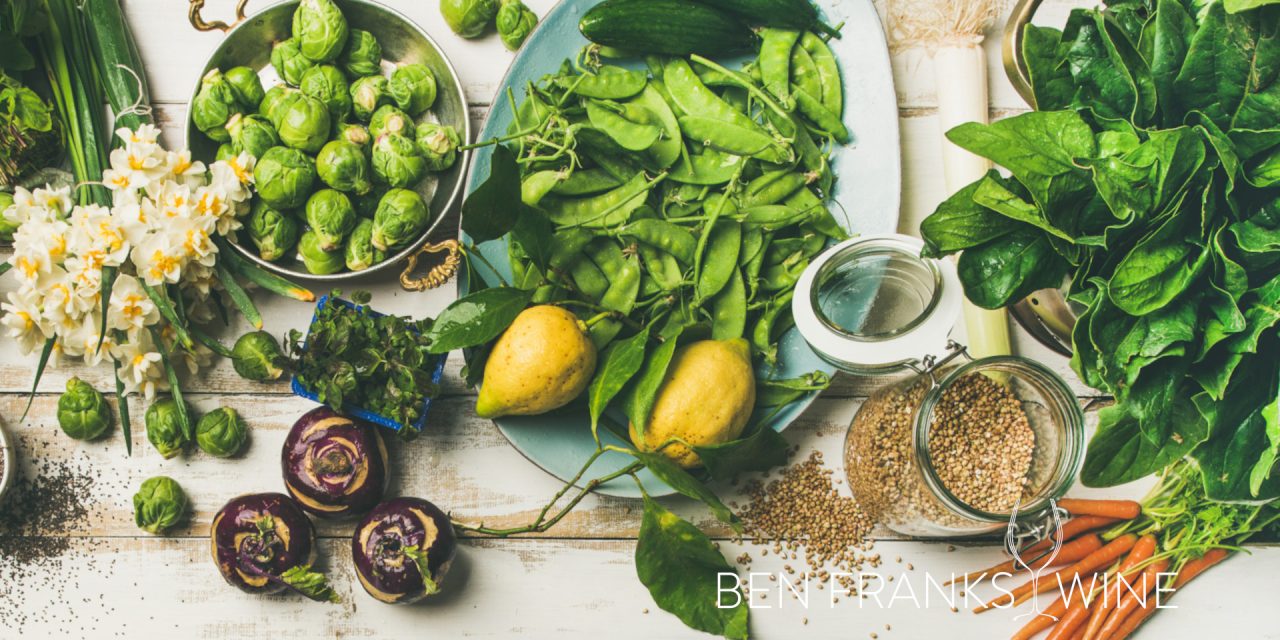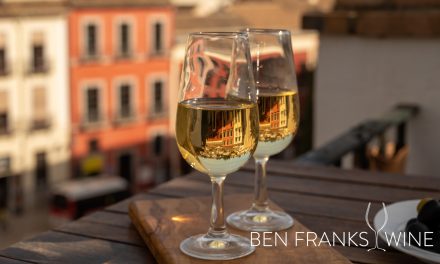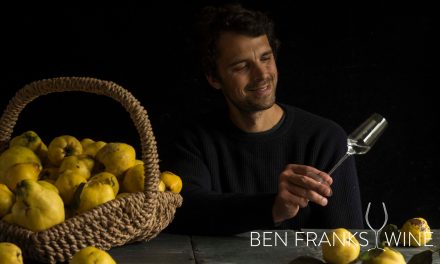How does going plant-based effect your lifestyle and what you choose to drink? Can we ever call ourselves vegan if we pine after meat, even if we don’t give in? We all know we need to eat less meat but is the issue more urgent today than ever before?
In Kris Pathirana‘s latest insight for Ben Franks Wine, he reflects on his first year going plant-based. Kris discusses how he expected to feel from ditching all animal products, versus what he actually felt in a health, spiritual and social sense.
I have been almost entirely plant-based for over a year. I say ‘almost’… one or two prawns may have slipped through the net, and if someone orders burrata for the table, what am I going to do, not eat the burrata? Leave it oozing over some achingly ripe heritage tomatoes, lonely and unfulfilled? No. This I cannot do. Also, I say plant-based rather than vegan because veganism is very much a lifestyle. At best, an admirable and desirable moral code, and at worst, an exclusionary, performative, identity cult. I’ve also long been reluctant to belong to any group, particularly one where its most outspoken male members have all the whiny, entitled, over-hanging chin charisma of a Young Tories of Tewkesbury Insta Story.
Yet I have always wrestled with the ethics of eating meat. Even in my mid-twenties when woefully misinformed in my vegan opposition, I always knew they had the moral argument, while I merely liked the taste. But rather than face my own hypocrisy, or even reality, I went out of my way to find ways to morally justify myself. Firstly, I would only eat organic, locally farmed animals who were tucked in at night with a bedtime story… not realising that even if animals are treated with care in life, the majority are still put to death in the same slaughterhouse as less middle-class livestock. Then, I would only eat nose to tail, patting myself on the back for eating arsehole to earhole, in the belief that the more off-cuts I ate, the less animals would need to be killed, which incidentally is not how the meat industry works.
At this point in life, I also considered myself the three-way, bon vivant lovechild of Hemingway, Kerouac and Anthony Bourdain, a dangerous and expensive identity which rendered dinner a near renaissance experience, to be pondered over from breakfast till noon. But as a horses for courses drinker, which beverage would be paired with which dish, required an equal volume of said pondering. Ritual became paramount. To turn down a dozen oysters with a glass of champagne at the overture of your evening would be an act of sheer blasphemy. A meal is to be savoured in more than one gear and a Gentleman should never skip the foreplay. But the ceremony of drinking also served a necessary digestive purpose. Two ice-cold Plymouth Martinis (yes, Plymouth – fight me) is the bacchanalian cheat code to prime the body for the deluge of animal fat about to be thrust upon it. A full-bodied Napa Cab is nature’s gift to washing it down, and a peaty 18-year-old Lagavulin is sky Jesus’ way of rendering all that fatty goodness into nothing – like Walter White dissolving a body in a bathtub of hydrochloric. Although there is no actual science to back this, the martini-wine-whisky vehicle is anecdotally unimpeachable. Now, in contrast, if you’ve ever preceded a meal of asparagus with two martinis, then you, sweet pioneer, are in for a world of pain.
Meat was not just desired, but necessary, and informed every drinking decision I made. Yet, despite only consuming private school, Guardian-reading animals, the ethics of eating meat still irked me. Morality is not passive. It must be actively challenged, or it atrophies until one day you wake up and decide that it’s perfectly reasonable to send asylum seekers to Rwanda. Morally, I felt I was passing the buck; vacuum packing my way to a victimless crime, safe in my Styrofoam hypocrisy from the reality of what taking a life actually meant. So, as is entirely on brand, I forced myself to go to a French farm and watch a live goat slaughter. This was my line in the sand. If I felt guilty about watching an animal’s life taken, then I would not eat meat again. I fully expected to have this reaction, which is perhaps why I forced myself to confront it. Unfortunately, it was not the harrowing fifteen-minute Gaspar Noe ordeal I had feared (or needed), and I left, morally justified in my decision to eat meat.
That was ten years ago. Today, if I saw the same scene, I would be repulsed not only by the act, but by myself, for pursuing the visual out of a self-indulgent attempt at absolving my own guilt. Yet that experience allowed me to avoid confronting this moral conundrum again… that is, until the pandemic. Ironically, the starter pistol was not relative to animal cruelty, but hearing Thomas Malthus’ theory on the Earth’s carrying capacity; and his prediction, based on humanity’s exponential growth versus the linear growth of the earth’s food supply, that eventually (spoilers) there would not be enough food to feed the population. Why should we care about the fears of an eighteenth-century British clergyman who was writing at a time when there were only eight hundred million people on earth, compared to seven billion today? Well, in 1960, there were only three billion, which means that in my mother’s lifetime, the population of the globe has more than doubled. But scarier still… there were only six billion people in 1999. Meaning, that since Jason Biggs had his way with orchard-based baked goods in American Pie, we’ve added one billion people. One billion. Side note: the earth’s carrying capacity is not measured by our ability to continue our way of life, but by our ability to not starve to death. Suffice to say, we will need all the fertile land and crops we can get to feed our ever-increasing population. But the reality is that a huge portion of crops are grown solely to feed animals for us to eat – and that’s not even factoring in the land that cattle require to be raised, or the fish plundered from the ocean to feed pigs.
It is obvious to all but the most wilfully mendacious, that this is the least efficient way to stave off impending catastrophe. But with the pandemic also came horror tales of wet markets, and simultaneously, a swathe of homegrown hypocrisy regarding animal welfare, food hygiene and mistreatment. This despite our decades of factory farming, mad cow disease, bird flu, swine flu, salmonella, and E. coli. Questions of what we ate, and how we ate, were suddenly in the ether. We were being presented with the error of our ways, and as someone who prides themselves on their ability to learn a lesson five to six years after said lesson would’ve been useful, I decided to make a change.
Initially, I looked at my own diet and realised that my main offender was dairy. I ate meat relatively often, but I averaged five flat whites a day. So, I made the switch to oat milk, which though awful at first, is now so habitual, that the notion of drinking juice designed for a calf, feels a tad gross. After that, I sought to reduce my meat intake. However, simply making the decision was only half the battle. My Insta-algorithm was already primed to show me every BBQ post under the Kentucky sun and every morsel of fried chicken in the Delta. After the online purge, drastic steps needed to be taken. I had to condition myself through negative reinforcement that this: was not meat. This was flesh. Flesh. I even volunteered at animal sanctuaries as I attempted to emboss my cerebral decision emotionally and sever the cognitive dissonance that held meat and animals as two separate entities. But the key was reducing over time and setting evolving boundaries: only eating animal products once a day, then once a week, then never at home, then only on special occasions, until finally – never. The physical effects were all positive. I felt better. Thinner blood. Less headrush. More energy. Lighter. Cleaner. I drank less, and even though my crisps and chips intake quadrupled, I found it impossible to put on weight, no matter how much I ate or how heavy I lifted. Yet those Proustian memories remained…
I still remember the two halcyon days of Hawksmoor on the Friday for a prime rib on the bone with a deeply tannic Malbec… and following that up on the Saturday with a Chateaubriand and a full-bodied brick of a Cab Sav at The Savoy. Did I say, remember? I meant pine. Both nights were preceded with several Old Fashioneds, accompanied by great company, and a feeling that both evenings were an ‘event’. I am yet to experience an ‘event’ feeling when going for a plant-based meal. Even as I describe it, one feels like an evening and the other feels merely consumption. This is indicative of the larger problem. When we abstain from something, we must replace it, or the habit won’t take. I assumed that in denying myself animal products and living a more Kantian life, that I would bask in a smug sense of moral superiority, and drift to sleep, counting all the sheep I had saved. Didn’t happen. Perhaps, because I find it unseemly to take credit for doing the right thing when the right thing should be the default, there was no actual moral superiority to be had. True, there were health benefits, but this was never about my own health. Perhaps, the tribal nature of the vegan community, and its sense of both identity and mission as a belief system, is the replacement. It also translates the act of culinary abstinence into a slightly exaggerated sense of personal achievement.
What did become clear was that no longer consuming animal products has had a fallout far beyond not eating meat. It has radically changed what restaurants I go to, what I drink, compromised my physical body goals, and definitively lowered the quality and enjoyment of my life by every unit of measure beyond its own. Life has had the volume turned down and the lighting dimmed. Less joy. More inconvenience. Less choice. What good is drinking a gloriously bold Uruguayan Tannat, if I’m pairing it with a vegan mushroom risotto (again)? What is the point of going to St. John, if I’m only going to eat Swiss Chard?
“As much as I would like to be plant-based forever, I suspect I am fighting my own nature, and this is perhaps too small a bridge over not troubled enough water, for it to truly stick.”
Recently, I heard I heard celebrated Happiness expert Mo Gawdat being interviewed, where somewhat inconveniently he used the practice of veganism as an example of being dishonest to oneself, saying, “If you identify yourself as vegan, but you crave animal protein… then you are not a vegan. You could be a striving vegan; you’re trying to be vegan… but you’re not.” Now, the preceding night, I had dreamt of eating a fried chicken sandwich, and even in my dream, this overcooked and under-sauced, imaginary chicken sandwich was still incredible. The problem is: we are who we are. As much as I would like to be plant-based forever, I suspect I am fighting my own nature, and this is perhaps too small a bridge over not troubled enough water, for it to truly stick.
By the time this is published, I may have already been broken. If so, I wonder what will be the straw that breaks the camel’s back… I do hope that it’s not camel. Whatever it may be, I suspect the occasion will echo Miles, the jaded protagonist of Sideways, who saves a bottle of ‘61 Cheval Blanc for the mother of all special occasions, only to surreptitiously drink it, sad and alone, out of a plastic to-go cup of a fast-food chain outlet. Which begs the question: should I break, where will I sit on the moral spectrum now that I know better? It would be hard to feign ignorance having now fused the semantic ties between meat and defenceless animal. Will I feel heinous and deviant? Perhaps the way David Cameron felt after he had carnal relations with the severed face of a dead pig? Will I feel guilty in remembering that the planet has grown a billion’s worth since a fictional character had relations with a lattice apple pie, and a real-life Prime Minister inserted his water-weight chubby into a porcine cadaver’s mouth (yes, this is worth repeating and we should not be allowed to forget it).
How do we live a moral and sustainable existence, when it makes our lives demonstrably harder and increasingly joyless? What difference does one person denying themselves animal products really make in the grand scheme? Or perhaps we’re framing the issue in too binary a fashion. Modern culture tells us, it’s about us and only us. My journey. My truth. What is best for me. So much so, that this is now not only viewed as an aspirational mentality, but has rebranded selfishness and a lack of consideration for others, as akin to taking care of one’s own mental health. There is something troubling about this pedestal of self, that seems antithetical to the moral and practical problems of our day, and at odds with all the evidence that suggests that what we truly need is a greater sense of community and a more pragmatic pursuit of public service. Maybe what is required is a smaller, communal commitment, rather than a guilt-driven, self-aggrandizing personal one. One person going entirely plant-based equates to twenty-one meals a week. Ten people committing to an entire plant-based day, equals thirty meals a week. If the result is what matters, then this is surely the most prudent choice. This idea has already been populated by the great Paul McCartney in his campaign ‘Meatless Mondays’; a campaign whose manifesto has survived despite a theme song so bad that it makes Imagine, John Lennon’s cultural litmus test for the clinically tasteless, sound like Shipbuilding.
We are who we are, and alone, we can only outrun our own nature for so long. But as a community and a greater society, perhaps we don’t need to outrun anything, perhaps the only thing that matters is that we cross the finish line at all.






